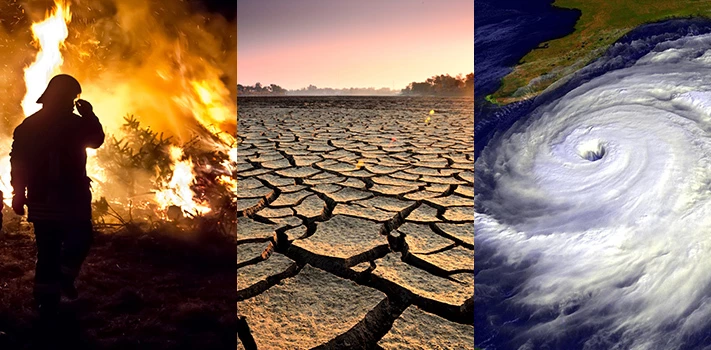Key strategies for degrowth in the fight against climate change
Virtual reality games can be utilised in personnel evaluation / Eliminating nuclear energy could increase air pollution
This strategy should be taken into consideration, according to recent reports from the Intergovernmental Panel on Climate Change (IPCC) and the Intergovernmental Science Policy Platform on Biodiversity and Ecosystem Services (IPBES), but a just transition to a post-growth economic model presents a number of difficulties.
The scientific group, which includes Jason Hickel and Giorgos Kallis of the Institute of Environmental Science and Technology of the Universitat Autnoma de Barcelona (ICTA-UAB), makes a number of recommendations that will enable governments to stabilise the economy in a post-growth transition, including a job guarantee, working time reductions, and a more equitable distribution of income. The authors also list five ways that scientists and policymakers can work together to ensure a just transition.

Key strategies for degrowth in the fight against climate change. (Illustrative image).
The pursuit of economic growth—constantly rising levels of industrial production, as measured by GDP—is a major contributor to the ecological crisis. The majority of the blame for this issue rests with high-income economies and the wealthy classes and corporations that rule them because of their unsustainable levels of energy and material use.
The lead author and professor at ICTA-UAB, Jason Hickel, explains that in the current economy, production is structured around the goals of capital accumulation rather than human welfare. As a result, the system overuses resources while continuing to fall short on many fundamental human needs. It is failing the planet and the people.
The scientists contend that high-income countries should give up aggregate growth as a goal in favour of securing basic human needs and well-being, while minimising unneeded forms of production and the excess wealth of the wealthy. This strategy, known as degrowth, can facilitate quick decarbonization and halt additional ecological erosion.
According to Hickel, "The prevailing assumption in economics today is that every sector of the economy must grow, constantly, regardless of whether we actually need it. This is risky and irrational in the midst of an ecological emergency. Instead of focusing on destructive industries like SUVs, fast fashion, and mass-produced beef, we should concentrate on producing what we know is necessary to achieve social and ecological goals, such as universal healthcare, affordable housing, public transportation, and renewable energy.
Working hour reductions, a green job guarantee, or a universal basic income are examples of policies that can aid nations in moving in the direction of degrowth, according to Giorgos Kallis, an ICREA professor at ICTA-UAB. However, there are still many unanswered questions regarding the ways in which institutions and systems depend on growth for their stability. Researchers can assist in identifying these dependencies and how to get around them.
According to co-author and Lausanne University professor Julia Steinberger, "The growth-dependent nature of current economies poses a threat to all of us for both social and ecological reasons. In order to consider radical alternatives for humanity to survive the 21st century and flourish within the bounds of the planet, degrowth research is thus a crucial lifeline.
The authors point out that, in contrast to recession, which happens when growth-dependent economies fail to grow, degrowth is a deliberate strategy to stabilise economies and achieve social and ecological goals.
Journal reference: Jason Hickel, Giorgos Kallis, Tim Jackson, Daniel W. O’Neill, Juliet B. Schor, Julia K. Steinberger, Peter A. Victor, Diana Ürge-Vorsatz. Degrowth can work — here’s how science can help. Nature, 2022; 612 (7940): 400 DOI: 10.1038/d41586-022-04412-x
End of content
Không có tin nào tiếp theo

